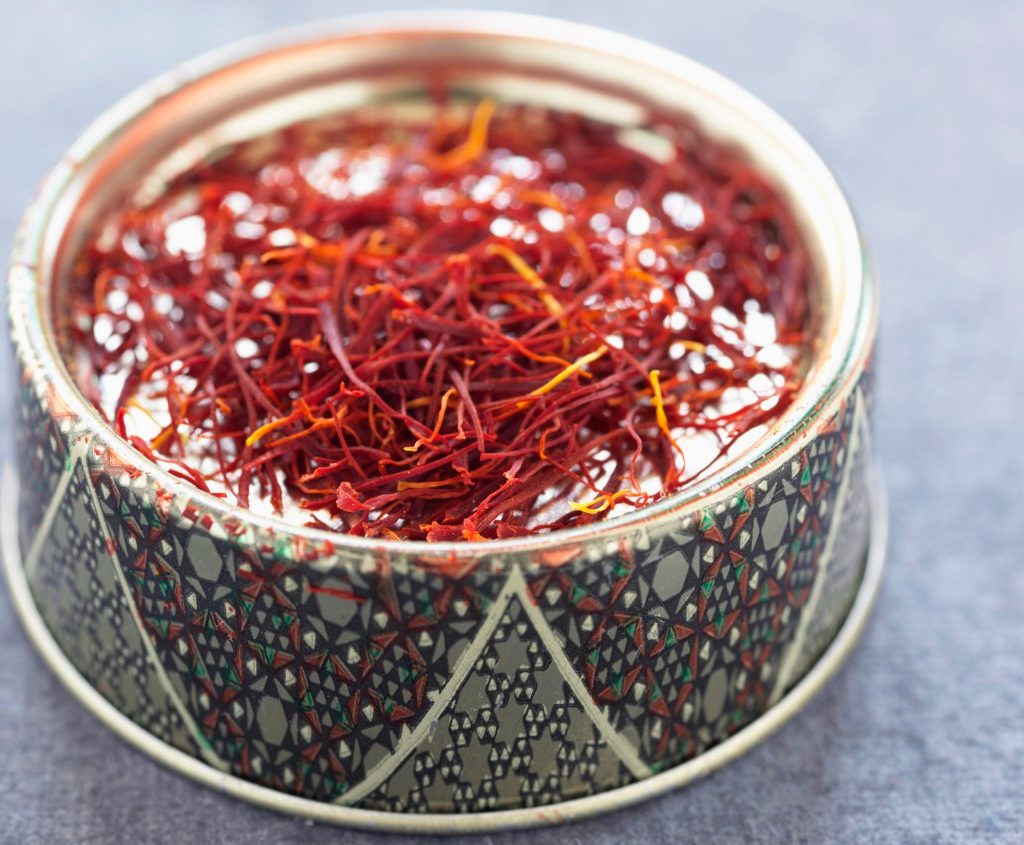The Health Benefits of Saffron

What are the health benefits of saffron? The pricey spice may help a variety of ailments without costing you a fortune.
So, you’re heading for a marathon. You could try taking pain relievers in advance and plan on an Epsom salt bath afterwards. But here’s another idea: saffron. The yellow spice comes from the flower of Crocus sativus, which has antioxidant, anti-inflammatory, and serotonin-boosting effects. There’s some evidence it can prevent muscle aches.
Scientists are just beginning to study how saffron can be used as medicine. Most of the research comes from Iran, which produces the bulk of the world’s saffron.
While saffron is expensive compared to other spices, a little goes a long way. The standard medical dose is 30 mg tablets that cost about 25 cents each retail.
YOU MIGHT ALSO LIKE: The Health Benefits of Honey
Health benefits of saffron for men
In a study of 39 male college students who weren’t normally active, researchers gave one group 30 mg saffron supplements daily for a week before and three days after an intense workout on a leg-press machine. Another group took placebo pills, and a third took a medication called indomethacin that belongs to the family of non-steroidal anti-inflammatory drugs (NSAIDs) like Advil and Aleve.
Three days after the workout, the men who took placebos were still sore. The men who took the NSAID had experienced some pain for about a day, but those who took saffron reported no pain at all. Both the saffron pills and NSAID prevented swollen muscles, but only the men who took saffron were stronger after the workout, by 64 percent.
Health benefits of saffron for depression and anxiety
Saffron may also boost mood. In one review of six studies, the authors concluded that saffron beat placebo and did as well as common antidepressants to treat mild-to-moderate depression. You can also take 30 mg of saffron daily alongside Prozac and Zoloft with good effects, according to a small study.
A larger meta-analysis of 11 controlled clinical trials also found a mood-boosting impact from saffron. Volunteers with symptoms of depression did not know if they were receiving saffron pills or inactive placebos over the course of weeks to months. Researchers who looked into the findings of the studies concluded “saffron has a significant effect on the severity of depression. Available data from randomized, controlled clinical trials support that saffron is significantly more effective than placebo.
The effect of saffron on memory is another promising area of research. In a 12-month study, researchers divided 68 patients with moderate-to-severe Alzheimer's disease between a group that received 20 mg a day of memantine, a standard Alzheimer’s drug, and another group that took 30 mg a day of saffron extract. Over the year, saffron did as much good as the medication, and had no more side effects.
Can saffron improve vision?
Saffron may be useful to improve vision in people with early age-related macular degeneration, some research shows, also in an affordable daily dose.
Saffron is a traditional remedy to induce abortion, so pregnant women should avoid it. But don’t panic if you happen to take a fragrant bite of paella, the Spanish stew that contains the spice; the abortion doses are 200 to 400 mg.
Cooking with saffron won’t have the impact of a daily regime, but you’ll enjoy it and might even feel a mood boost. Cooks add saffron to many dishes beyond paella: bouillabaisse, Cuban-style pork and rice, Italian risottos, Moroccan lamb tagine, and African bean stews.
Updated:
August 30, 2022
Reviewed By:
Janet O’Dell, RN